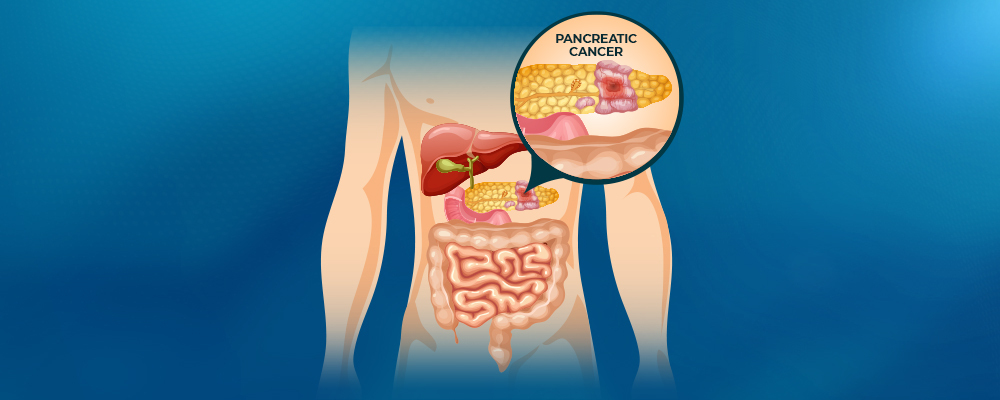
Introduction
Pancreatic cancer cannot be completely avoided. However, there are steps you may take to reduce your risk potentially.
Therefore, a deep insight into preventive measures helps lower the chance of developing this disease. Pancreatic cancer is among the most challenging cancers due to its silent symptoms and late diagnosis. It affects the pancreas, an essential organ in digestion and blood sugar regulation. So, let’s see paramount factors like how to prevent pancreatic cancer and is pancreatic cancer hereditary.
How to Prevent Pancreatic Cancer?
You cannot prevent pancreatic cancer from happening. Although, there are steps to reduce the risk factors:
Quit Smoking
Smoking is the paramount cause of multiple health conditions. Therefore, if you smoke, quitting is the most effective way to lower the risk. Tobacco exposure damages DNA, leading to mutations. Within years of quitting, your risk decreases significantly.
Eat a Balanced Diet
The American Cancer Society recommends eating healthy to prevent pancreatic cancer. However, the question is, what exactly is a healthy eating pattern? It includes vegetables, fruits, and whole grains and requires avoiding processed or red meat, highly processed foods, and sugary drinks. Furthermore, maintaining an active lifestyle along with a balanced diet can significantly reduce the risk of pancreatic cancer.
Avoid Alcohol
Some research has linked heavy alcohol usage to pancreatic cancer. Chronic pancreatitis, which is known to raise the risk of pancreatic cancer, is another illness that can result from heavy alcohol usage. Alcohol use should be avoided. If you do drink, you should limit your intake to no more than one drink for women and two for men per day.
Manage Chronic Conditions
Properly manage diabetes and chronic pancreatitis to reduce your risk. Take prescribed medications, monitor blood sugar levels, and follow a healthy lifestyle plan.
Regular Checkups and Screenings
Talk to your doctor about genetic testing. You might wonder if pancreatic cancer is hereditary. The answer is Yes. You should check if you have a family history of cancer. Regular screenings can detect early signs of cancer especially if you have risk factors.
Also Read: How to Prevent Brain Tumor
Knowing the Key Risk Factors
The foremost step you need to learn is to understand the risk factors. Gaining insight into the risk factors helps reduce the risk of developing pancreatic disease.
Lifestyle Factors
Smoking remains one of the leading causes. Tobacco introduces harmful carcinogens that damage pancreatic cells. The diet also influences risk. Consuming a high-fat, low-fiber diet increases inflammation and encourages cancer growth. Excessive alcohol consumption further damages the pancreas, contributing to chronic pancreatitis.
Health Conditions
Obesity significantly raises the risk of pancreatic cancer. Fat tissues release hormones that promote inflammation and cell mutation. Diabetes, particularly type 2, also plays a role. Chronic pancreatitis, a long-term inflammation of the pancreas, often precedes cancer development.
Genetic Predisposition
Certain inherited conditions make pancreatic cancer more likely. If you have a family history of hereditary cancers, consult a healthcare provider. Genetic testing can help assess your risk and guide preventive steps.
What is Pancreatic Cancer?
Pancreatic cancer is the result of uncontrolled cell growth in the pancreas. These cells form tumors that can spread to other organs. Moreover, they are not like other tumors in the body, as they remain undetected until advanced stages. This makes preventive measures even more critical.
Exocrine tumors, which include tubular adenoma of colon, and endocrine tumors are the two primary forms of pancreatic cancer. Pancreatic ductal adenocarcinoma, the most prevalent type, is an aggressive cancer that needs to be treated very quickly.

Is Pancreatic Cancer Hereditary?
In some cases, yes. If any of your family members has pancreatic cancer or you have a history of this disease, you are likely to develop this condition. Genetic mutations, such as BRCA1 and BRCA2, also elevate susceptibility. However, lifestyle factors often play a larger role in determining your risk. Even with a genetic predisposition, you can take steps to prevent it.
The Role of Early Detection and Innovation
Solid tumor clinical trials are advancing detection techniques. Researchers are developing blood tests and imaging tools to identify pancreatic cancer earlier. These trials offer hope for better outcomes. Decentralized clinical trial strategies make participation easier, ensuring more people can benefit from cutting-edge solutions.
Preventive Measures for High-Risk Individuals
If you wonder, if pancreatic cancer is hereditary, and have a family history, adopt these extra precautions:
- Genetic Counseling: Work with a genetic counselor to assess your risk.
- Proactive Screening: Use advanced imaging techniques to monitor pancreatic health.
- Lifestyle Overhaul: Focus on a plant-based diet, regular exercise, and stress management.
Raising Awareness and Advocacy
Since the disease is difficult to control and can be detected in an advanced stage, it is important to raise awareness.
Preventing pancreatic cancer requires community efforts. Awareness campaigns educate people about risk factors and prevention. Supporting research initiatives accelerates the development of better treatments. Advocacy groups play a vital role in raising funds and offering resources to those affected.
Comparing Pancreatic Cancer with Other Tumors
While a difficult disease to detect, pancreatic cancer does have similarities and differences to other tumors.
Pancreatic cancer shares similarities with certain rare tumors, like phyllodes tumors and Pancoast tumors. Both are aggressive and require early detection. However, pancreatic cancer is unique due to its location and role in critical bodily functions.
Bulky tumors in organs like the liver or lungs often present more noticeable symptoms. In contrast, pancreatic tumors remain hidden until advanced stages. This difference underscores the importance of prevention.
Conclusion
To conclude, preventing pancreatic cancer is a tough job. Therefore, preventing the risk factors can help significantly. It all starts with informed choices. By adopting a healthier lifestyle, you can lower your risk and improve your overall well-being. Quit smoking, eat a balanced diet, and exercise regularly to protect your pancreas.
If you wonder pancreatic cancer can be hereditary, take proactive steps like genetic testing and regular checkups. Early detection and preventive measures make a major difference. Additionally, NHO Revive is a leading clinical trial platform combining decades of clinical expertise and pioneering research. To advance medical research and help find a potential cure, we are here to bring clinical trials to you at ease.







